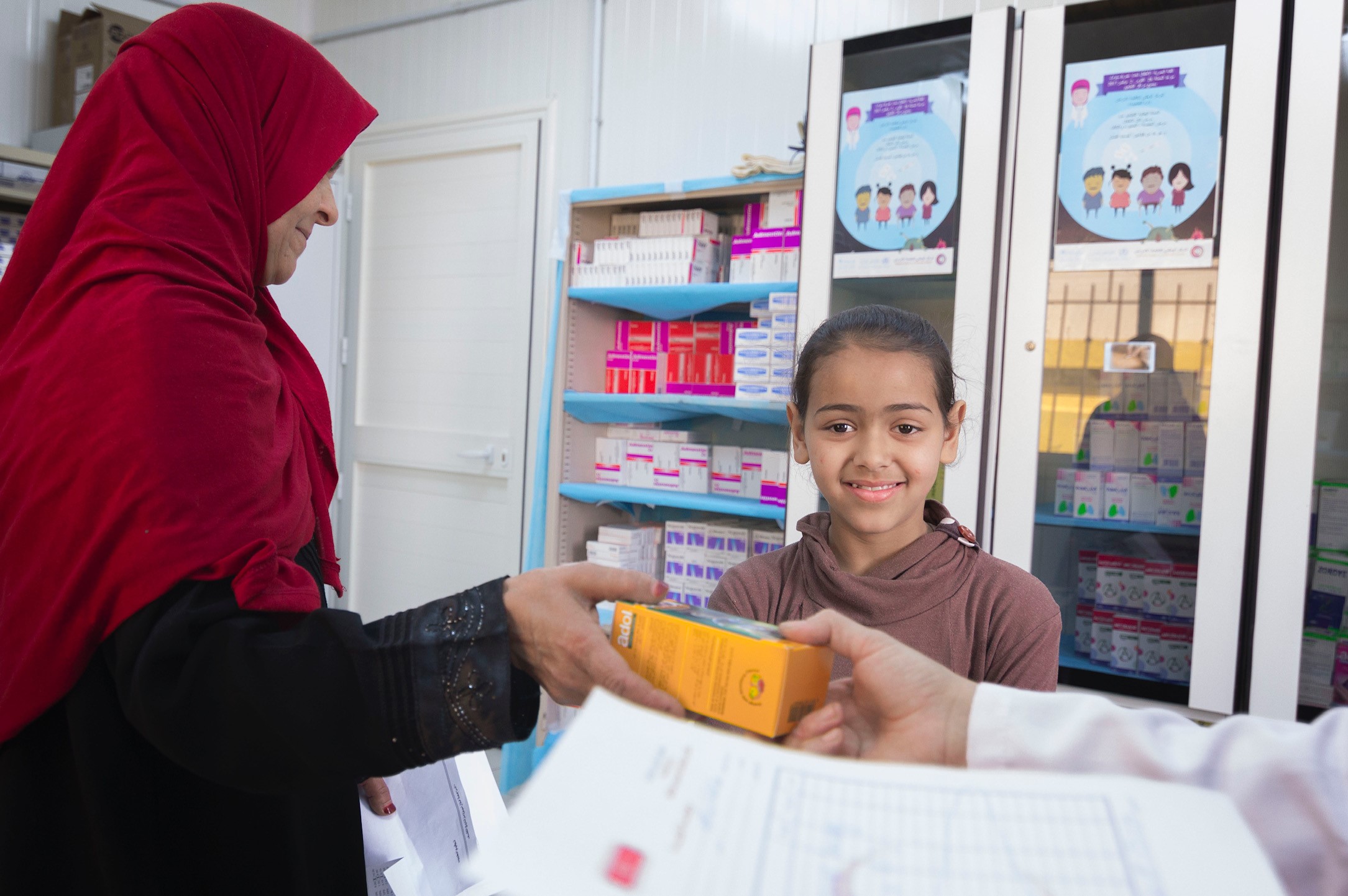Stabilization Facility for Libya holds final Board Meeting: 370 initiatives help Libyans recover from conflict in 24 municipalities across the country
August 26, 2022

Fatma Ibrahim Mohammed is receiving medicines at the pharmacy of the health centre. The medical facility was delivered by the Stabilization Facility for Libya.
Tunis, 26/August/2022 – The Ministry of Planning and the United Nations Development Programme (UNDP) held the final board meeting of the Stabilization Facility for Libya (SFL) today with representatives of its 13 international partners. The event was an opportunity to review results achieved by the facility across the country in the last six years while also capturing lessons and setting the path forward towards the next phase: the national local peacebuilding programme.
More than US$95 million was invested since 2016 to support communities experiencing conflict and displacement or those hosting the displaced. Working with municipalities and local partners and leaders the program facilitated community dialogues, supported reconciliation initiatives, and encouraged elected municipal officials and citizens to engage in collective decision making. Civil works and equipment provision supporting the rehabilitation of critical public infrastructure – water treatment, health facilities, schools and universities, energy infrastructure, and other municipal functions – helped thousands of Libyans displaced return to their homes. The facility invested in 24 municipalities across the country. SFL has also helped municipalities to respond to the COVID-19 pandemic by refocusing its support to the health, and water and sanitation sectors in 2020. The SFL improved the quality of lives for over 4.7 million people.
During the Board meeting, the Ministry of Planning, H.E. Mohammed Yousef Al-Zaydani, stated: “The Stabilization Facility for Libya emerged as a unique multi-donor instrument that along with improving basic services and infrastructure, has created opportunities for peaceful reconciliation locally through community conflict monitoring and local planning. For the next upcoming Peacebuilding area-based programme, the Ministry of Planning is ready to contribute and lead the programme together with other ministries and the international community.”
On his part, UNDP’s Resident Representative, Mr. Marc-André Franche, noted the Facility’s achievements despite the challenging operational context, underlining the many lessons learned which will be integrated in the next phase. “The SFL has demonstrated the importance of participatory analysis and plans at the local level and how relatively small amounts invested in the right way can help people rebuild their lives with dignity. UNDP looks forward to continuing working with the Libyan authorities and partners to launch a new local peacebuilding program to work in up to 30 municipalities across Libya to build trust between citizen and authorities, improving services and create jobs.” he concluded.

 Locations
Locations


